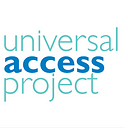Meet Simon, a Future Doctor Advocating for Women’s Health

By Seema Jalan
An estimated 20 million adolescent women want to prevent pregnancy but are not using a modern form of contraception. Around the world, young people are advocating in their communities for comprehensive sexual and reproductive health and rights for all.
Meet Simon, 22, Congolese:
“Young people’s greatest need is for accurate information: about their bodies, about handling relationships, sexuality, reproduction, and family planning,” said Simon. “This need is shared by all young people — rich and poor, sexually active and inactive, married and unmarried, males and females.”
It was this very information that Simon lacked when he first went to study at Kampala International University in Uganda, where he is pursuing a medical degree.
“Young people in Uganda today are a critical mass of actors with significant influence on social, health, economics, and demographics in the country,” he noted. But, he explained, there are still a lot of people who do not have full sexual and reproductive health and rights, and adolescents remain particularly vulnerable.
“Sexuality education is often not comprehensive or not given at all, and health workers, teachers, parents, and community members are often reluctant to discuss sexuality issues with young people,” said Simon. “Young people face a multitude of roadblocks to become the best they can be.”
Simon took action and became a sexual and reproductive health and rights advocate, calling for change and an increase in access to quality health information and services in his community, especially for young people. Although he faced opposition early on due to deeply ingrained attitudes toward reproductive health and rights, including family planning, related to religious and cultural beliefs, officials at Simon’s school now allow a sexual and reproductive health peer education program at the university. Simon said this has already shown an increase in students accessing sexual and reproductive health information and services, including family planning.
“Imagine what our communities and economy would look like if young people had the chance to finish school and join the workforce,” he noted.
Simon is working to challenge notions of masculinity and power dynamics in his community. “Men need to be engaged as gender advocates, speaking out as active agents and stakeholders who can help transform social norms, behaviors, and gender stereotypes that perpetuate discrimination and inequality.”
Simon encourages his peers to be “self-driven,” to be an active part of the conversation around their own sexual and reproductive health: “When we give our youth a chance to make an impact, their choices and opportunities define the present and future of our world.”
Access to quality sexual and reproductive health information and services is a fundamental human right and a key intervention to enable young people everywhere to pursue an education, launch a career, and control their futures. Learn more about the Universal Access Project and get involved at www.universalaccessproject.org.
